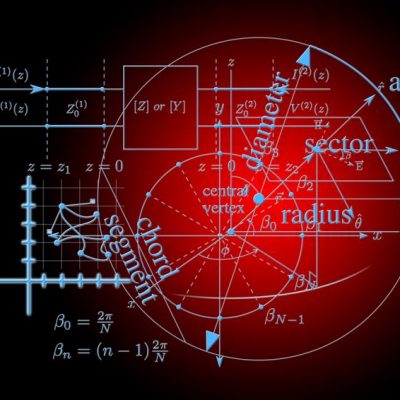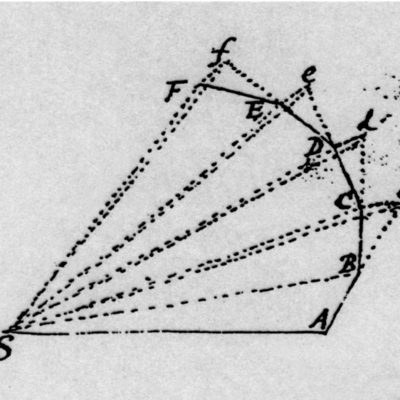Is it possible to reason about objects that can notbe defined in a finite number of words? Is it even possible to talk about it knowing what one is talking about, and by saying something other than empty words? Or should we look at them as unthinkable? As for me, I do not hesitate to answer that they are pure nothingness.
All the objects we shall ever have to contemplate, either will be defined in a finite number of words, or will be imperfectly determined and will remain indistinguishable from a lot of other objects; and we will be able to reason congruently with them only when we have distinguished them from those other objects with which they remain confounded, that is, when we have come to define them in a finite number of words.
If we consider a set, and want to define the different elements, this definition will naturally be divided into two parts; the first part of the definition, common to all the elements of the whole, will teach us to distinguish them from elements which are foreign to this whole; it will be the definition of the whole; the second part will teach us to distinguish the different elements of the whole from one another.
Each of these two parts must consist of a finite number of words. If we speak of all the elements of a set of which we give the definition, we want to speak of all the objects which satisfy the first part of the definition and that we will be able to finish by defining by this sentence a finite number of words that we want. We give you only half of the definition, you can then complete it, choosing the second half as you please; but you must complete it. If I affirm a proposition about all the objects in a set, I mean that if an object satisfies the first part of the definition, the proposition with respect to that object will remain true, regardless of how you will state the second part; but if you can state it as you wish, it is necessary that you state it, otherwise the object would be unthinkable and the proposal would have no meaning.
It is not that we cannot do it and that we have made some objections to this way of seeing things. The sentences of a finite number of words can always be numbered, since they can be sorted alphabetically, for example. If all thinkable objects must be defined by similar sentences, we can also give them a number. There would be no more thinkable objects than integers; and if we consider space, for example, if we exclude points which can not be defined in a finite number of words and which are pure nothingness, there will not remain more points than there are whole numbers. And Cantor has shown the opposite.
This is only an optical illusion; to represent the points of space by the phrase which serves to define them; to classify these sentences and the corresponding points according to the letters which form these sentences, is to construct a classification which is not predicative, which entails all the inconveniences, all the paralogisms, all the antinomies of which I spoke at the beginning of this chapter. What did Cantor mean and what did he really show? We can not find, between the integers and the points of space definable in a finite number of words, a law of correspondence satisfying the following conditions: 1° This law can be expressed in a finite number of words. 2° Given any integer, we can find the point of the corresponding space, and this point will be entirely defined without ambiguity; the definition of this point which consists of two parts, the definition of the integer and the statement of the law of correspondence, will be reduced to a finite number of words, since our integer can be defined, and our law to be stated in finite number of words. 3° Given a point P of space that I suppose defined in a finite number of words (without forbidding me to include in this definition allusions to the law of correspondence itself, which is essential in the demonstration of Cantor) there will be an integer which will be determined without ambiguity by the statement of the law of correspondence and by the definition of the point P. 4° The law of correspondence must be predicative, that is to say that if it makes correspond a point P to an integer, it will not have to stop making correspond this point P to this same integer, when we have introduced new points of space. This is what Cantor has demonstrated, and this is always true; we see what is the complicated meaning enclosed in this brief proposition: the cardinal number of the points of space is greater than that of integers.
And so what should we conclude? Any theorem of mathematics must be verifiable. When I state this theorem, I affirm that all the verifications that I will attempt will succeed; and even if one of these verifications requires work beyond the strength of a man, I say that if several generations, hundred if necessary, consider it expedient to, will succeed. The theorem has no other meaning, and this is still true if in its statement we speak of infinite numbers; but as verifications can only relate to finite numbers, it follows that any theorem about infinite numbers or especially about what are called infinite ensembles, or transfinite cardinal, or transfinite ordinals, etc., etc., does not can be an abbreviated way of stating propositions on finite numbers. If it is otherwise, this theorem will not be verifiable, and if it is not verifiable, it will have no meaning.
And it follows that there can be no obvious axiom concerning infinite numbers; every property of infinite numbers is only the translation of a property of finite numbers; it is the latter that can be obvious, while the first must be demonstrated by comparing it to the last and showing that the translation is accurate.









Leave a Reply